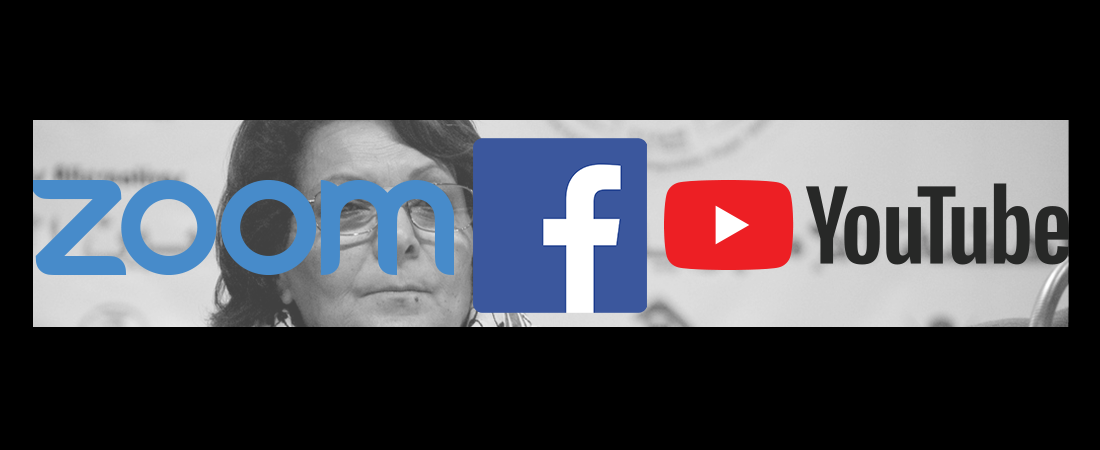Update 4/14/2021: After pushback from NCAC and other organizations, Zoom announced it will reduce its content restrictions for higher education institutions. This policy change is a victory for academic freedom and free speech, particularly at a time when so many are reliant on virtual learning.
Original Post 10/8/2020: NCAC has written to leaders at Zoom, Facebook and YouTube to express deep concern with the companies’ recent censorship of an academic panel featuring Leila Khaled, a member of the Popular Front for the Liberation of Palestine, at San Francisco State University. While these platforms claim to support free speech, their disregard for academic freedom demonstrates a disturbing willingness to censor educational content at a time when academic institutions are heavily reliant on virtual learning.
If support for free speech means anything, it means allowing unpopular people to speak, unless it is clear that their speech is unprotected. This incident draws into question the ability of academic institutions to rely on Zoom, Google and Facebook platforms for educational purposes.
Earlier this summer, San Francisco State’s Arab and Muslim Ethnicities and Diasporas Studies program announced that it would host an online roundtable entitled, “Whose Narratives? Gender, Justice and Resistance.” Leila Khaled was invited to participate. Khaled is a member of the Popular Front for the Liberation of Palestine (PFLP), which is designated as a Foreign Terrorist Organization by the United States Department of State, as well as by Japan, Canada, Australia, and the European Union. In 1969 and 1970, Khaled participated in two airline hijackings. After the second, she was taken into custody, but was later released in an exchange for the release of hostages in a subsequent hijacking.
Despite pressure to cancel the event, San Francisco State President Lynn Mahoney refused, stating that although she condemns both terrorism and hateful ideology, the commitment of public universities to academic freedom, to freedom of expression and to freedom of inquiry prevented her from cancelling the discussion.
The seminar was scheduled to be hosted on Zoom. Bowing to external pressure, Zoom refused to host the discussion. Roundtable organizers attempted to move the event to Facebook and to YouTube. Both companies tout their dedication to freedom of expression. Both companies censored the live feed of the event.
Perhaps Zoom, YouTube and Facebook censored the San Francisco State event because they disagreed with the political views of the speakers. Or perhaps because they feared that hosting the event would constitute “material support of terrorism” under the Violent Crime Control and Law Enforcement Act of 1994, despite their robust legal teams’ almost certain knowledge that there is no legal precedent for such a claim, and that any such claim would be unlikely to survive a First Amendment challenge. No court has ever ruled that merely allowing a member of a terrorist group to speak at an academic forum constitutes support of terrorism. Either way, the companies’ decisions undermine their purported support for free expression and raise serious questions about the utility of the platforms for academic purposes.
An American company that truly supports the free and open exchange of thoughts and ideas would not have silenced the San Francisco State panel. Knowing that no precedent exists for punishing an academic forum for allowing a member of a terrorist group to speak, such a company would have hosted the panel and dared the government to come after it. Such a company certainly would not have “played it safe” by canceling the session.
NCAC and its co-signors strongly urge Zoom, Facebook and YouTube to reaffirm their commitments to free expression and ensure that their platforms do not impede the free and open exchange of ideas and information.
Co-signors:
American Association of University Professors
Association of University Presses
Defending Rights & Dissent
DKT Liberty Project
Electronic Frontier Foundation
Partnership for Civil Justice Fund
PEN America
Project Censored and the Media Freedom Foundation
Woodhull Freedom Foundation
Read the full letter to Zoom, Facebook and YouTube below. Click here for a full screen view:
Image of Leila Khaled via Wikimedia Commons / Sebastian Baryli from Vienna, Austria. / CC BY https://creativecommons.org/licenses/by/2.0


